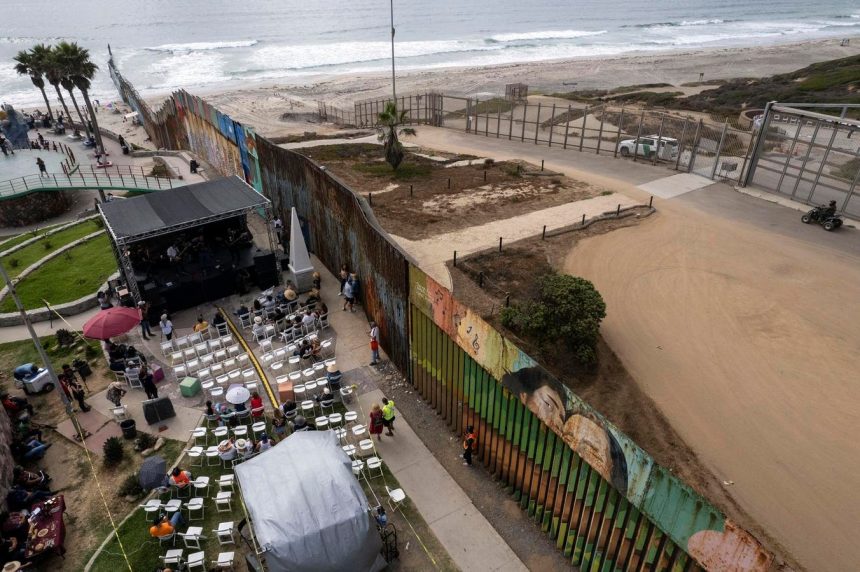Border security, a deeply divisive issue, presents an unexpected opportunity for bipartisan cooperation centered around environmental concerns. Historically, environmental protection enjoyed bipartisan support, exemplified by the establishment of the EPA under a Republican president and a Democratic Congress. The current polarized climate surrounding border security obscures the potential for common ground, harking back to a time when environmental stewardship was a shared value. A renewed focus on the ecological realities of border regions, transcending political divisions, can offer a pragmatic path forward.
Border policy must acknowledge the interconnectedness of ecosystems that defy political boundaries. Rivers, groundwater, wildlife, pathogens, and air currents flow freely across borders, demanding a collaborative approach to management. Existing binational organizations, like the International Boundary Commission between the U.S. and Canada, and the U.S.-Mexico Border Health Commission, provide established frameworks for cooperative management. These bodies, with their accumulated experience and expertise, are well-positioned to implement integrated social and environmental border policies. Shifting the discourse from the public arena to the focused deliberations within these commissions can foster reasoned solutions over politically charged rhetoric.
Transboundary conservation efforts, a tangible manifestation of “green” border security, offer a historical precedent and a potential model. The Waterton-Glacier International Peace Park, established in 1937 through joint U.S.-Canadian efforts, demonstrates the viability of collaborative conservation across borders. While the U.S.-Mexico border presents unique challenges, opportunities exist for similar transboundary initiatives. The proposed conservation area near Big Bend National Park in Texas, despite facing political obstacles, showcases the potential for ecological connectivity even within a more secure border framework. Leveraging natural barriers like mountain ranges and rivers, which have historically defined political borders, coupled with advanced mapping of ecosystems, can optimize both security and conservation.
A nuanced understanding of border security recognizes the vital ecological role that hard borders can play. Preventing the spread of invasive species and diseases is a shared interest that transcends political divides, offering a point of convergence for seemingly disparate groups. Even in cases where borders are a legacy of colonialism, as in Africa, their functionality in containing crises cannot be ignored. The containment of the Ebola epidemic in West Africa highlights the critical role of hard borders in preventing wider spread. Similarly, Australia’s substantial investment in biological security underscores the global importance of border control in safeguarding ecological health. International cooperation in adopting minimally intrusive technologies that maintain border functionality for biosecurity is crucial.
Economic considerations are inextricably linked to border policy, particularly regarding resource trade. Optimizing ecological and economic efficiency in food production, mineral extraction, and manufacturing requires strategic trade policies. Cultivating crops in regions with optimal water and climate conditions, mining in geologically accessible areas, and implementing international treaties to ensure environmental compliance are all essential components of a sustainable approach. Furthermore, border restrictions on immigration must be considered in conjunction with global economic dynamics, particularly the potential of large working-age populations in developing countries. China’s economic development, fueled by its demographic dividend, provides a compelling example of how economic growth can mitigate illegal immigration pressures.
Ultimately, a science-based, ecologically informed approach to border security offers a pragmatic path forward, moving beyond the current political impasse. Recognizing the interconnectedness of ecosystems, leveraging existing cooperative frameworks, embracing transboundary conservation efforts, acknowledging the ecological role of hard borders, and integrating economic considerations can transform the debate on border security. This holistic perspective allows for a more nuanced and effective approach that balances security needs with environmental stewardship and economic realities, paving the way for bipartisan cooperation and sustainable solutions.



